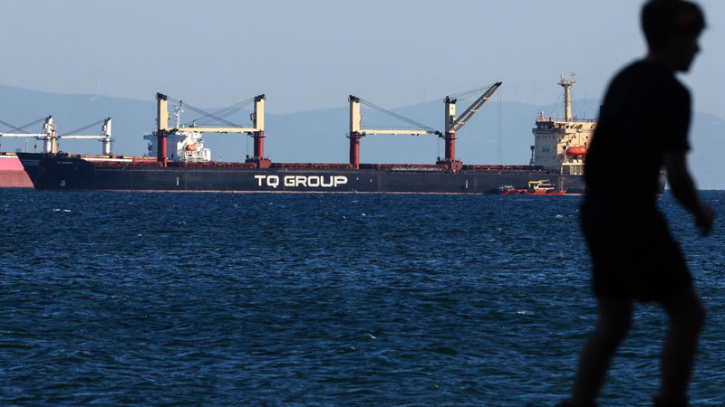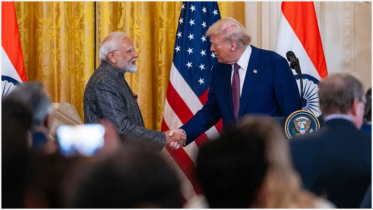Russia mulls new grain deal with Turkiye, works on new export routes

Russia said on Friday that a new grain deal with Turkiye might be possible if Moscow's demands were met, announcing works on new export routes after it pulled out of the Black Sea Grain Initiative earlier this week.
The deal, brokered by the United Nations (UN) and Turkiye, aimed to help prevent a global food crisis by allowing grain blocked by Russia's invasion of Ukraine to be safely exported from Black Sea ports.
Russian Deputy Foreign Minister Sergei Vershinin said Moscow was ready to explore options on grain exports, but that there were no current talks on an alternative to the Black Sea deal.
Vershinin was addressing a briefing about Russia's decision on Monday to quit the year-old wartime initiative.
Asked about possibility of a new accord with Turkiye, he said suggested format is possible when Russian demands are addressed.
Turkish President Recep Tayyip Erdogan, a sponsor of the grain deal, said on Friday that he hoped talks with his Russian counterpart Vladimir Putin could revive it, warning its collapse would drive up prices, create hunger and potentially cause new waves of migration.
Russia said a parallel memorandum pledging to facilitate its own food and fertilizer exports had been ignored.
Western leaders accuse Moscow of seeking to loosen sanctions imposed over its invasion of Ukraine, which already exempt exports of Russian food. Russian grain has moved freely through the Black Sea to market throughout the conflict.
Erdogan on Friday called on Western countries to "follow up on Putin's expectations."
The Turkish leader repeated earlier remarks that he hoped Putin would visit Turkiye next month. He added that he might soon have a phone call with the Russian leader before a possible face-to-face meeting.
Since it exited the deal, Russia has said any vessels travelling to Ukraine will be assumed to be carrying weapons, and their flag countries will be considered parties to the war. Kyiv responded with a similar warning about ships headed to Russia.
Vershinin accused Ukraine of using the grain export corridor to launch "terrorist attacks" against Russian interests, including one this week on the Crimean Bridge.
Ukraine has denied using the corridor for military purposes, but Vershinin alleged, without providing evidence, that there had been several instances of this.
"It was used – as we know, and we have also talked about it – to organise terrorist attacks," he said.
"It was the Crimean Bridge, twice already; it was Sevastopol, remember last October."
Attacks apparently carried out with naval drones have twice severely damaged the 19-km (12-mile) Crimean Bridge, a Russian flagship project that provides the only direct link between southern Russia and the Crimean peninsula, which Russia seized from Ukraine and annexed in 2014. It has also been used to supply Russian troops fighting in southern Ukraine.
Kyiv implicitly acknowledged carrying out the first attack, in October, and Ukrainian media reported this week that Ukrainian security services had carried out the second.
Also last October, Moscow accused Ukraine of attacking the home base of the Russian navy's Black Sea Fleet at Sevastopol, in Crimea, with naval drones that had travelled from the Ukrainian port of Odesa via the waters of the safe corridor.
It also said the ships targeted had been involved in ensuring the security of the grain corridor.
.png)




